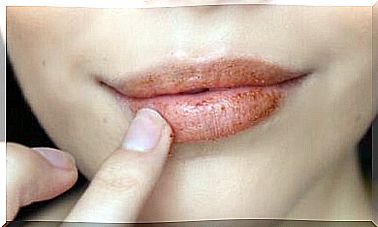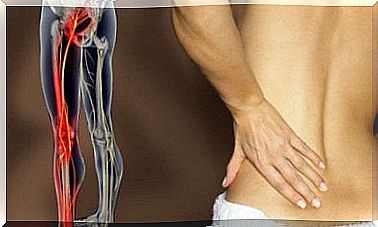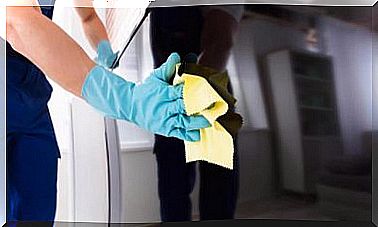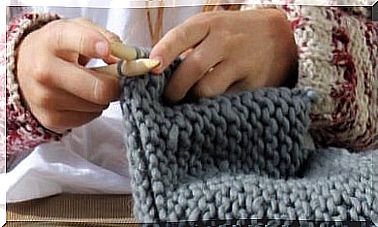Dislocated Jaw: Causes And Treatment
A dislocated jaw is a rare but potentially uncomfortable condition. Do you know what are the causes and possible treatments?
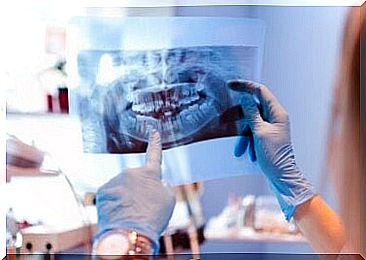
Have you ever had a dislocated jaw? The medical term for this condition is temporomandibular dislocation. This joint usually has several tendons and ligaments that hold it in place. However, they can fail and this situation can occur.
This condition occurs when one of the components of the joint, called the condyle, separates from the joint surface and moves over the temporal bone. It is very common for this displacement to occur in the anterior plane of the joint, but it can be in any direction.
Why can the jaw dislocate?
Before knowing the possible causes of a dislocated jaw, it is important to remember that this is an unusual condition. In fact, several studies claim that it represents only 3% of all dislocations. This is why there is a lot of disagreement about its main origin.
What we can say for sure is that the causes will depend on what kind of dislocation we find. In the case of acute dislocation, that is, one that lasts for a few minutes or hours, the most common cause is trauma.
In this sense, situations that involve a direct hit to that region could trigger the jawbone. However, it should not be excluded that this injury occurred spontaneously. Thus, it can arise from various situations involving opening the mouth wide or keeping it open for an extended period:
- Yawning
- To laugh
- Vomiting
- Dental treatment
- Endotracheal intubation
Another type of jaw dislocation is chronic relapsing dislocation, which is defined as a constant change over time and involves wear and tear on joint components. In this case, the most common causes of a dislocated jaw are spontaneous.
On the other hand, the jaw can easily be dislocated in people with bruxism or any psychiatric disorder. This is due to the constant tension to which the joint is subjected.
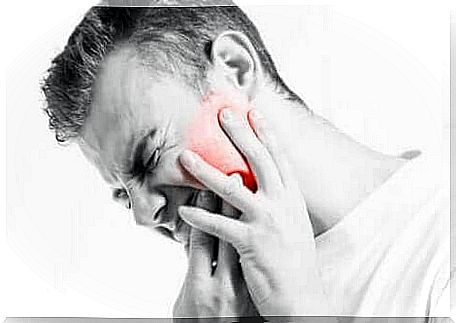
How do you recognize a dislocated jaw?
People with this injury often have sudden pain in the jaw area, usually stabbing, which restricts chewing and movement. In addition, the joint breaks when moving.
In summary, the two characteristic symptoms are pain and noise in the joints. On the other hand, the deviation of the jaw can also be noticed, either towards the healthy side or towards the front.
In addition, many patients report being unable to close their mouths or achieve dental occlusion. However, these signs can vary, so we can find patients with dislocation for several months, because they have not felt discomfort.
The doctor will have to use all the elements of the medical history to establish a correct diagnosis. In this sense, he will have to study the characteristics of the pain and conduct a thorough physical examination of the joint. Sometimes an x-ray will be needed as a confirmation method.
What is the treatement ?
The treatment of a dislocated jaw is medical. It is therefore important to seek the help of healthcare personnel when this condition is suspected.
In the case of acute dislocations, they can be reduced in most cases by the maneuvers of Nelaton or Dupuis. These vary depending on whether it is a bilateral or unilateral variant, respectively.
The two maneuvers have the same principle: the doctor will insert his thumbs into the oral cavity and place them on the lower molars. Then he will apply downward pressure while trying to lift the chin up, which will generate negative pressure or tension that will push the mandibular condyle into place.
In some cases, especially in stressed patients, it will be necessary to resort to general anesthesia to facilitate the process. After performing the maneuver described above, a bandage may be needed to stabilize the area for a few days.
In cases of more severe acute or chronic recurrent dislocations, surgery may be necessary. However, the use of botulinum toxin has been shown to be beneficial in avoiding surgery in some patients.
On the other hand, physiotherapeutic treatment will restore the functionality of the joint. It will therefore be recommended in cases of recurrent chronic dislocations.
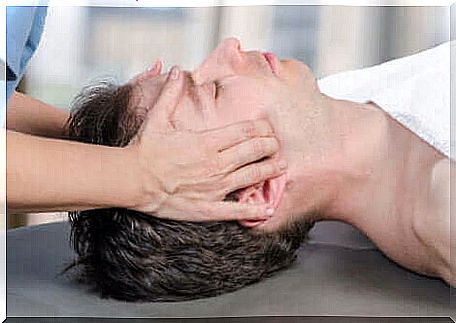
What if your jaw is dislocated?
Although not an immediate danger to life, this condition can be very troublesome and make it difficult to carry out daily activities. The first thing to do with a dislocated jaw is to see a healthcare professional.
This is the only way to reverse the problem with the maneuvers mentioned above and start the appropriate treatment with pain relievers and anti-inflammatory drugs. If this is a recurring problem, it is best to refer to the same specialist to take the appropriate measures.
